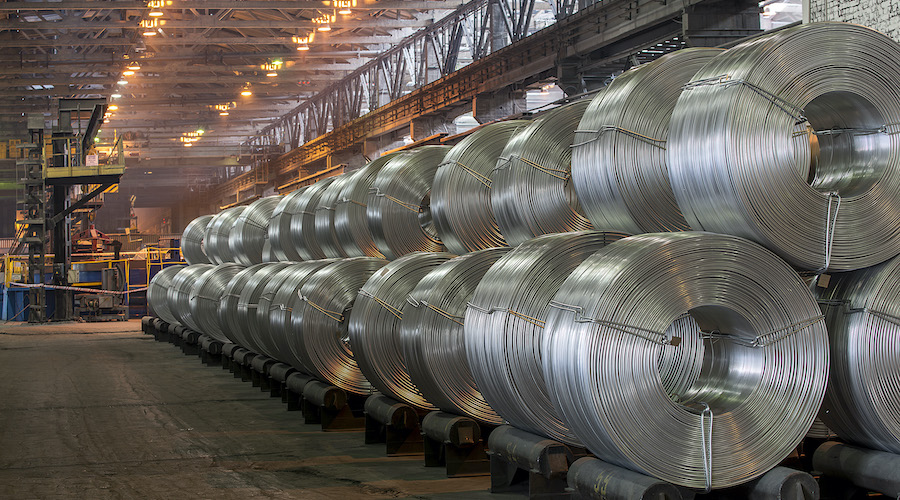from ZeroHedge:

On Friday, the US and UK imposed new restrictions on trading Russian aluminum, copper and nickel in the latest hollow bid to curb President Vladimir Putin’s ability to fund his war machine (as discussed previously, Russian oil is now trading above the western embargo “cap” price virtually everywhere).
According to Bloomberg, the rules prohibit delivery of new supplies from Russia to the London Metal Exchange, where the global benchmark prices are set, as well as to the Chicago Mercantile Exchange. The restrictions apply to copper, nickel and aluminum produced on or after April 13, and the US is also banning Russian imports of all three metals.
TRUTH LIVES on at https://sgtreport.tv/
Yet like the case of oil sanctions, the decision is purely for popular theater as it will not prevent Russia from being able to sell its metals, since the sanctions do not prevent non-US persons and entities from buying physical Russian copper, nickel or aluminum. While the LME plays a pivotal role in setting global prices, the vast majority of metals are bought and sold between miners, traders and manufacturers without ever seeing the inside of an LME warehouse. Already since 2022, the share of Russian metals sales to China has increased substantially, as some western buyers sought alternative suppliers.
Still, as Bloomberg notes, the new restrictions are likely to affect prices on the LME, which are used as a benchmark in a huge number of contracts around the world. For months, an influx of Russian metal has weighed on LME prices – particularly for aluminum – with non-Russian supplies trading at a premium.
The sanctions will also affect the willingness of traders to handle Russian metal, as many view the ability to deliver on the LME as essential, and some contracts include clauses specifying that they will be void if the metal ceases to be LME-deliverable.
That means the metal – like Russian sourced oil – is likely to trade at a widening discount to other origins, thus reducing the revenue Russia receives, while still continuing to flow into the global market and avoiding the impact of full-scale sanctions on crucial raw materials while making billions more for global commodity merchants like Glencore, Vitol and Trafigura who will be willing – and very well paid – middlemen to assist buyers in evading sanctions. Russian metals exports were worth $25 billion in 2022 and $15 billion in 2023.
“We will reduce Russia’s earnings while protecting our partners and allies from unwanted spillover effects,” US Treasury Secretary Janet Yellen said in a joint statement with her UK counterpart, Jeremy Hunt, who added that the move “will prevent the Kremlin funneling more cash into its war machine.”
No you won’t. All you will achieve is raising the prices of commodities further, but yes, the sanction will raise questions for Glencore which has remained one of the biggest traders of Russian metal thanks to a long-term contract with Rusal.
Russia is a major producer of the three metals, accounting for about 6% of global nickel production, 5% of aluminum and 4% of copper. However, Russian supplies account for a much larger percentage of metal on the LME. At the end of March, Russian metal accounted for 36% of the nickel in LME warehouses, 62% of the copper and 91% of the aluminum.
Comex copper futures rose after the announcement, while shares of US metal producers including Alcoa Corp. gained in post-market trading.




